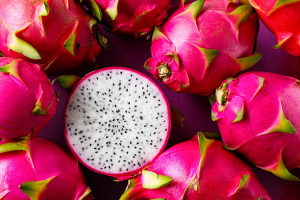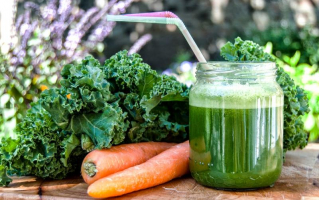Top 6 Health Benefits of Yuzu Fruit
Yuzu (Citrus Junos) is a citrus fruit hybrid that is also known as Yuja. It originated about 1,000 years ago in China and is now found in Japan, Korea, and ... read more...other areas of the world. The fruit is tiny, about 2-3 inches in diameter (5.5–7.5 cm). It has a thick yellow skin and is significantly more fragrant and acidic than other citrus fruits. Its juice, peel, and seeds are very popular in East Asian cuisine, where they serve as gourmet flavorings for vinegar, spices, sauces, and marmalades. Yuzu oil is extremely popular in cosmetics, perfume, and aromatherapy. Here are the best health benefits of yuzu fruit.
-
Yuzu is low in calories but highly nutritious. In fact, 3.5 ounces (100 grams) provides (1):
- Calories: 53
- Carbs: 13.3 grams
- Protein: 0.8 grams
- Fat: 0.3 grams
- Fiber: 1.8 grams
- Vitamin C: 59% of the Daily Value (DV)
- Vitamin A: 31% of the DV
- Thiamine: 5% of the DV
- Vitamin B6: 5% of the DV
- Vitamin B5: 4% of the DV
- Copper: 5% of the DV
Smaller levels of magnesium, iron, zinc, calcium, riboflavin, niacin and vitamin E are also present. Furthermore, it contains potent plant chemicals such as carotenoids, flavonoids, and limonoids. These all function as antioxidants in the body, and research suggests that they may aid in the reduction of inflammation, the battle against cancer cells, and the promotion of heart health.
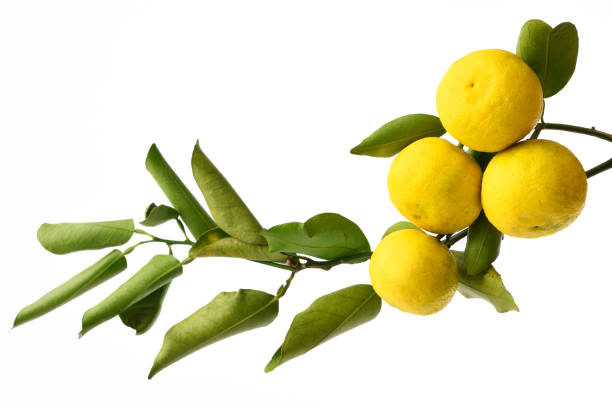
Highly nutritious 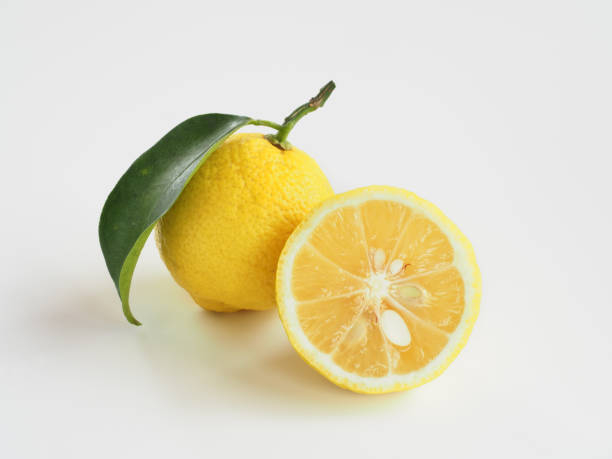
Highly nutritious -
Antioxidants are substances that neutralize free radicals, which are reactive molecules that cause cell damage and oxidative stress when their levels in the body get too high. This stress is linked to a variety of disorders. Antioxidant-rich diets are considered to lower the risk of cognitive disorders, heart disease, type 2 diabetes, and some forms of cancer. Vitamin C, carotenoids, and flavonoids are among the antioxidants found in yuzu.
Vitamin C not only acts as an antioxidant, but it also aids in the regeneration of other antioxidants in your body, such as vitamin E. Furthermore, limonene, a taste molecule found in the peel of yuzu and other citrus fruits, functions as an antioxidant and helps decrease inflammation, according to test-tube research. It may be especially beneficial in the treatment of some forms of asthma. Furthermore, animal and test-tube research reveal that the antioxidants in yuzu extract may help fight obesity and inflammatory bowel disease (IBD).

Contains powerful antioxidants 
Contains powerful antioxidants -
Blood clotting prevents bleeding after a cut or scrape. Excessive clotting, on the other hand, can develop blockages in small and big blood arteries, which can lead to heart disease, heart attack, and stroke. Interestingly, animal and test-tube studies show that yuzu extract may have anti-clotting benefits via blocking platelet clumping.
These qualities are connected to two important flavonoids found in both the meat and peel, hesperidin and naringin. Yuzu extract may lower your risk of heart disease by boosting blood flow. However, much more research is required before it can be suggested for this use.
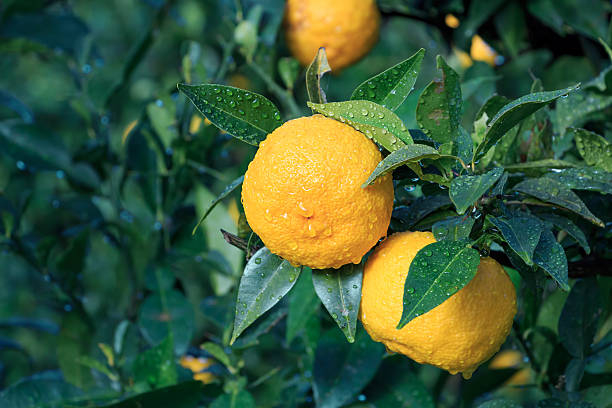
May improve blood flow 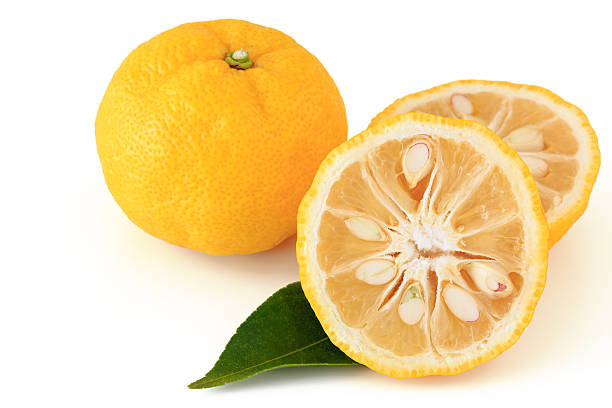
May improve blood flow -
Yuzu has a variety of anti-cancer compounds. Limonoids, which are found in a variety of citrus fruits, are of special importance. Test-tube studies show that they are effective against breast, colon, and prostate cancer. Tangerine and the flavonoid nobiletin are also found in the yuzu peel. Nobiletin inhibits tumor development in test tubes and animals, but tangeretin inhibits leukemia cell proliferation.
Yuzu may protect your brain against illnesses like Alzheimer's, according to animal and test-tube research. In fact, the long-term use of Yuzu extracts enhanced brain function and blood sugar management in rats with induced brain damage. Furthermore, the yuzu flavonoid naringenin has specific brain-protective properties. In two investigations, naringenin isolated from yuzu enhanced memory and lowered oxidative stress from brain-damaging proteins in mice with induced memory loss.

May protect your brain 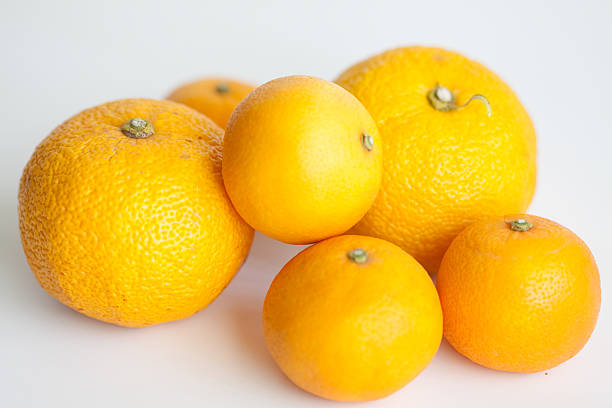
May have anticancer properties -
The scent of yuzu oil is attributed to compounds such as limonene and linalool, which contain notes of grapefruit, mandarin, bergamot, and lime. Interestingly, multiple studies have found that yuzu oil has relaxing properties, which may help relieve stress and anxiety. Twenty ladies breathed the yuzu smell for 10 minutes in one research. For 30 minutes, they observed a reduction in stress indicators, mood disturbance, tension, melancholy, rage, and disorientation.
Another two investigations with small groups of young women found that 10-minute inhalation also reduced heart rate and enhanced nervous system function. Furthermore, inhaling diffused yuzu essential oil reduced stress, irritability, and exhaustion more effectively than inhaling hot steam and similar to lavender oil. Finally, a study of 60 moms in the hospital with their sick kids discovered that an aromatherapy room diffused with yuzu oil dramatically lowered the mothers' anxiety levels. As a result, the perfume of yuzu may provide emotional relaxation similar to that of other appealing aromas.
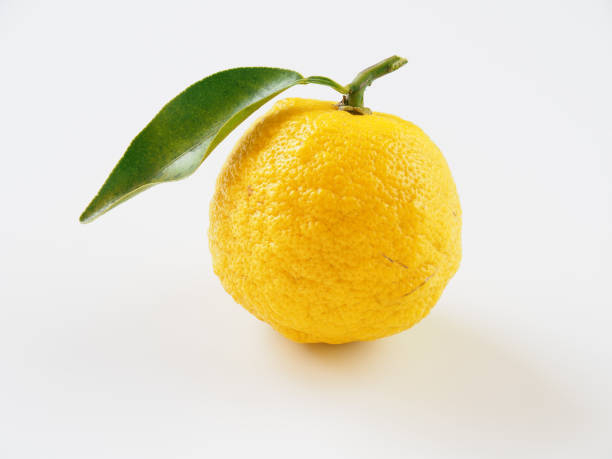
Its fragrance has soothing effects 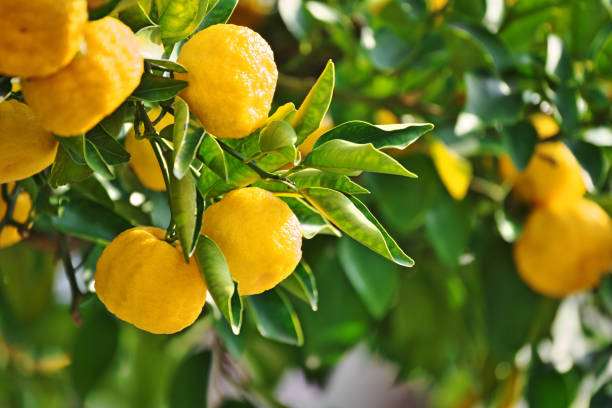
Its fragrance has soothing effects -
Citrus fruits contain acid, which can be damaging to tooth enamel. Brush your teeth after ingesting citrus meals or drinks to avoid tooth damage. Citrus foods may induce mouth sores and other problems in those receiving chemotherapy. If you are undergoing chemotherapy, see your doctor about reducing your intake of citrus fruits such as yuzu.
Some people are sensitive to citrus fruits, such as yuzu. You may have wheezing, watery eyes, chest tightness, or skin problems such as dermatitis. Several components in citrus fruits may cause issues, although citric acid sensitivity is uncommon. If your symptoms are severe, contact your doctor right once.

Promote tooth and mouth problems 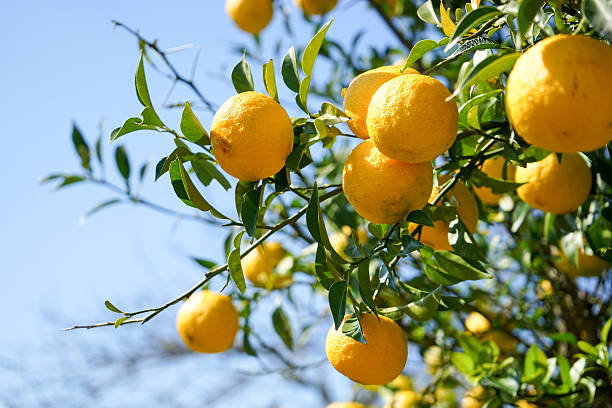
Promote tooth and mouth problems









